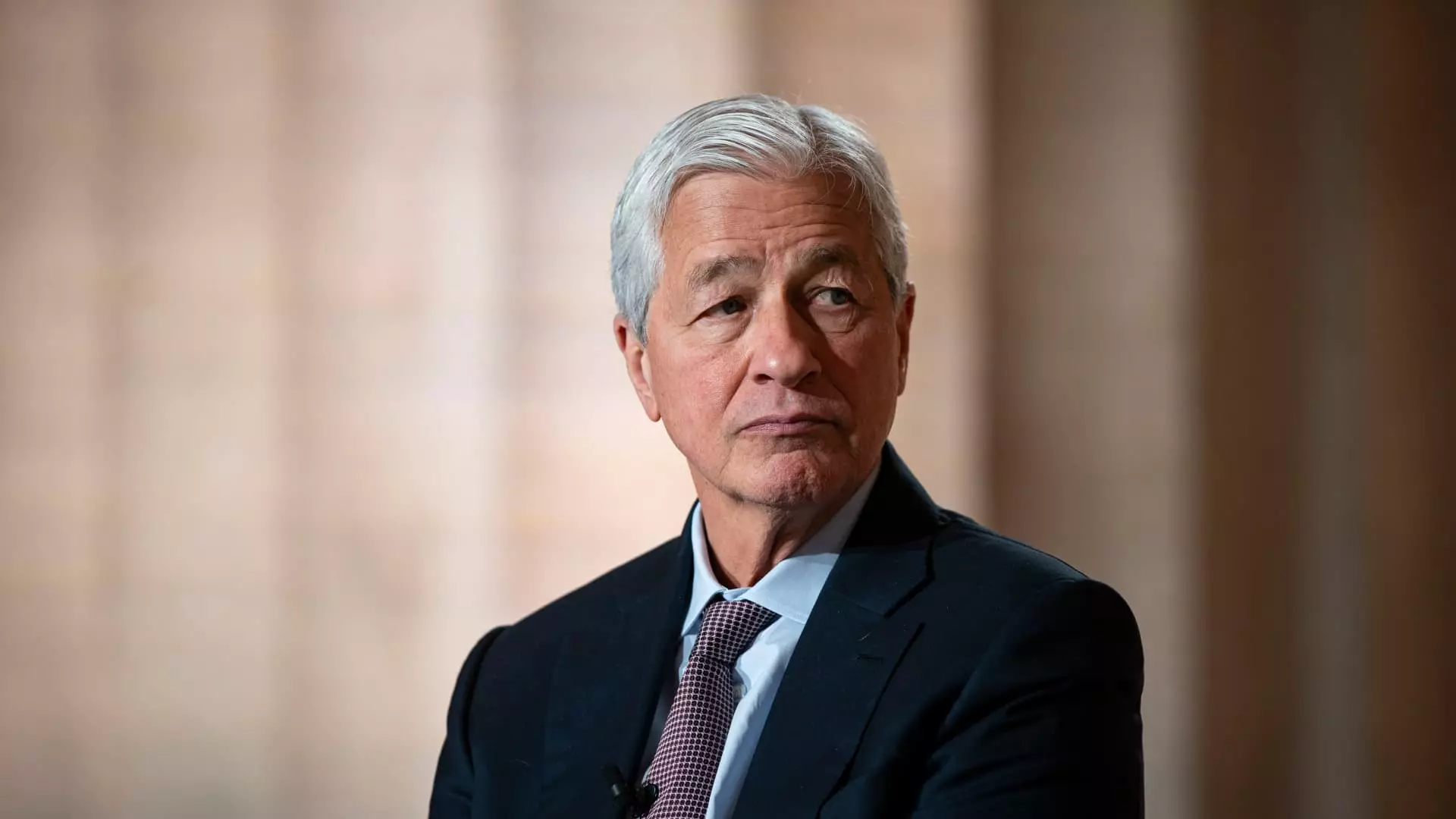In a striking shift from previous bullish rhetoric, JPMorgan Chase CEO Jamie Dimon has stepped into the public eye, unequivocally predicting a recession for the U.S. economy. This statement resonates amid turmoil spurred by President Donald Trump’s tariffs, reminiscent of Pandora’s Box being flung open, unleashing chaos into the financial markets. The relentless trade war with China, marked by escalating tariffs, has left investors reeling, stirring feelings of instability as stock indices dive and bond yields spike. It’s almost poetic how a few aggressive trade decisions can throw the economy into disarray, as we stand on the precipice of uncertainty.
Dimon’s remarks were no mere anecdotal observations; they reflected the genuine tremors felt across Wall Street. A staggering 2000-point drop in the Dow Jones Industrial Average isn’t just numbers on a page; it encapsulates the existential dread of average investors watching their retirement savings evaporate. In moments of financial turbulence, anxiety becomes collective, creating a psychological feedback loop of caution and withdrawal from spending. One can only wonder how many people out there were revitalizing their economic confidence only to see it splinter under the weight of tariffs and tariff retaliations.
Wall Street’s Nervousness and Dollar Decline
With markets spiraling into uncertainty, is it any wonder that Dimon warns of likely recessionary consequences? The 84% tariff China imposed on U.S. goods isn’t just a trade maneuver; it’s a blatant declaration of economic war. Each tit-for-tat measure escalates tensions and reinforces Wall Street’s fears, ushering in a climate of volatility that leaves little room for optimism. Companies and individual consumers alike may pull back, creating a self-fulfilling prophecy wherein predictions of economic downturn manifest through diminished consumer spending and investment.
As JPMorgan’s economists project a 0.3% contraction of the GDP, this cautious outlook seems more than just statistical extrapolation. It highlights the reality that markets often price in uncertainty before the true impact is felt in everyday life. The macroeconomic landscape is changing, and these shifts resonate down to micro levels—impacting actual companies and consumer sentiment. In that regard, Dimon’s assertion that “markets aren’t always right” is a slight misnomer; they can, at times, serve as precursors to eventual economic truths. This fight-or-flight reaction within the market only heightens the dread surrounding where we might be headed.
Dimon’s Contradictory Stance on Tariffs
Interestingly, Dimon’s position has not always been one of fearing tariffs. Earlier this year, he boldly suggested that the American public needed to accept tariffs unapologetically, as if inflation and economic pain were acceptable costs for national security. Ironically, as the situation grows direr, this line of thought is beginning to look like a dangerous gamble. His transition from supporter to cautionary voice reveals a nuanced understanding that markets do not react to economical theories in a vacuum; rather, they respond to consumer sentiments, stock behaviors, and global stability.
He now advocates for negotiations, urging the U.S. to make meaningful deals with its trading partners. “Take a deep breath, negotiate some trade deals,” he insists. At this critical juncture, it feels like the ultimate plea for rationality amid increasingly volatile financial storms. The stakes are too high for policy-makers to ignore, yet they remain bogged down by partisan issues and tightlipped defenses of abstract national pride which risk more than just economic loss—they risk eroding public confidence.
The Path Forward: Crucial Appointments
Alongside his economic forecasts, Dimon’s commentary also illuminates an important political move: the confirmation of Federal Reserve Governor Michelle Bowman as the vice chair for supervision. As financial systems operate within a regulated framework, her appointment is imperative. With a potential recession looming, having a trusted steward of the regulatory landscape becomes paramount. In these uncertain times, Dimon’s call for timely progress isn’t just advised; it might be necessary to avert deeper catastrophe.
As Jamie Dimon raises alarms, he embodies the conflicted nature of leadership during tumultuous times. His insistence on negotiation, coupled with his recognition of market fears, highlights not just the fragility of our economic systems but also the critical role that informed, responsive leadership must play. While optimism may seem elusive, understanding the stakes, both globally and domestically, might be our best hope for navigating through this storm.

Leave a Reply